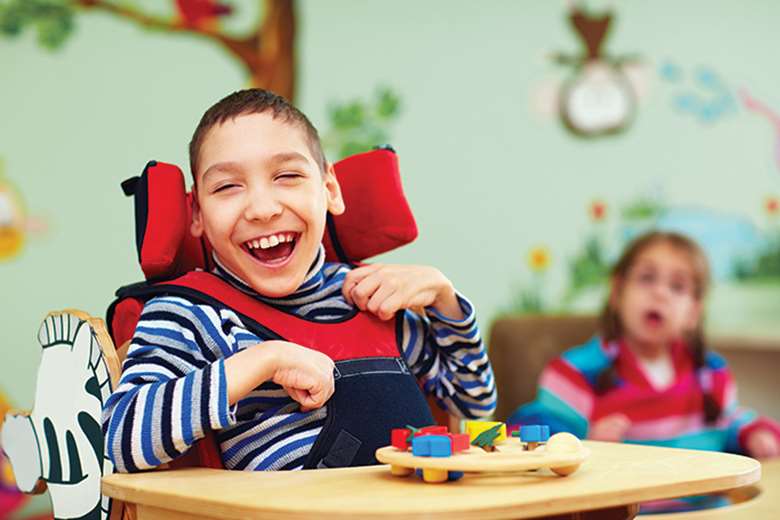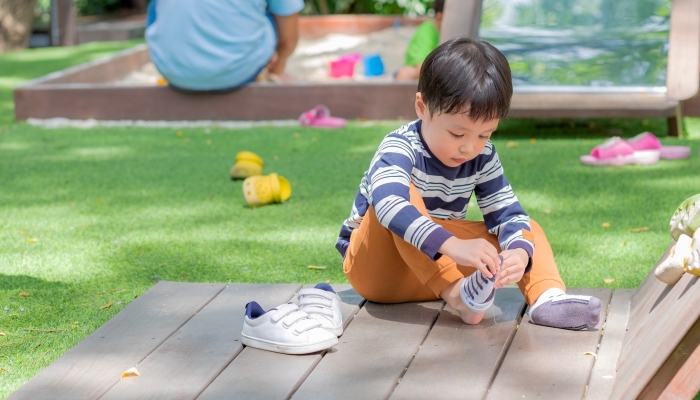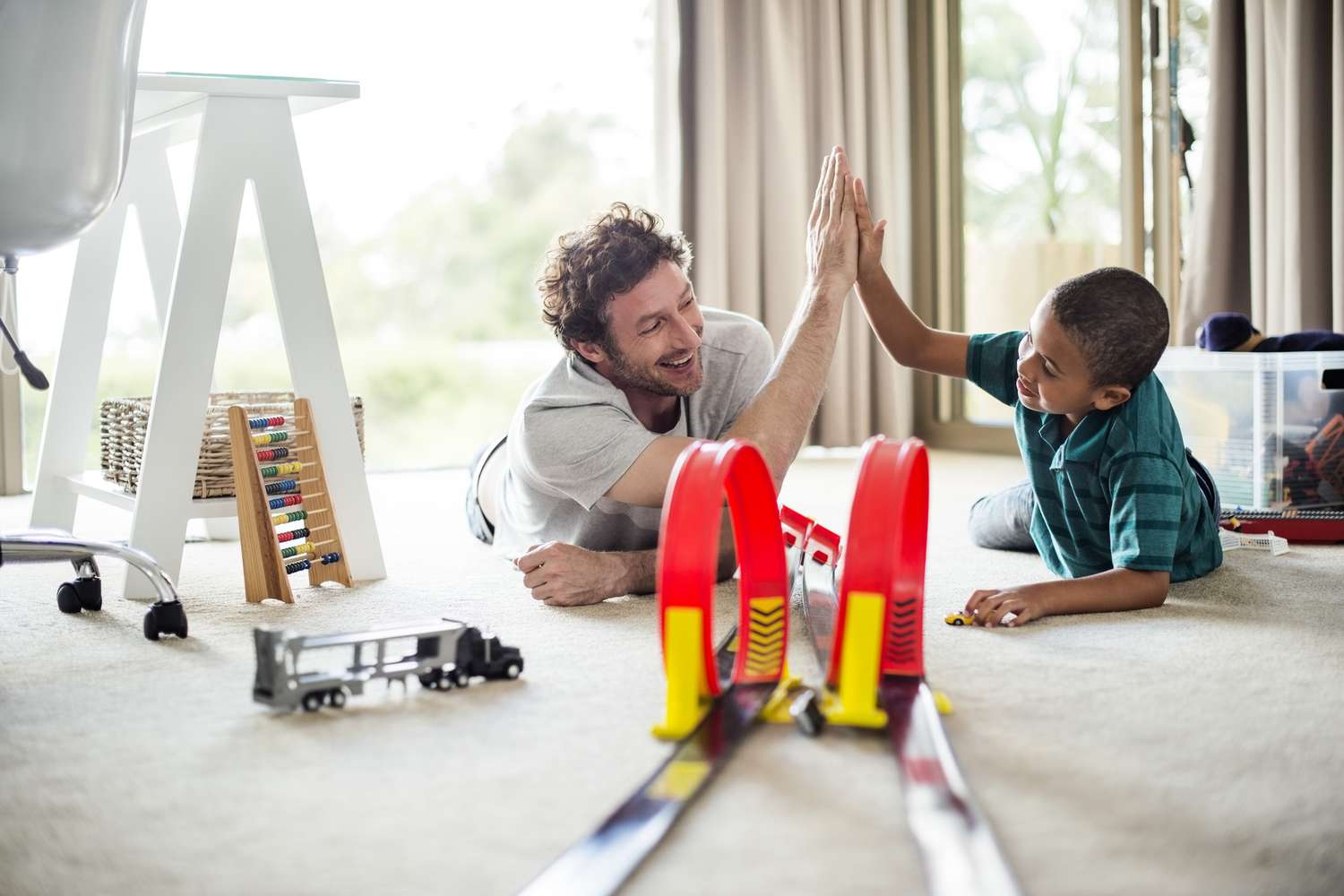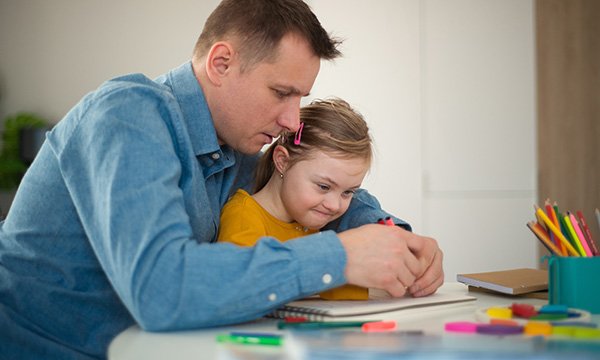What Methods Foster Independence in Special Needs Children?
To empower independence in special needs children, understand their unique needs and tailor personalized strategies. Early skill development lays a strong foundation, start young to build confidence. Encourage decision-making and problem-solving for growth. Self-care routines empower and boost confidence steadily. Use positive reinforcement to celebrate milestones and boost confidence. Establish structured routines and visual supports for consistency. Foster peer interactions and create a supportive, inclusive environment. Celebrate small achievements and set achievable goals for continuous progress. Learn more about fostering independence in special needs children by exploring diverse methods tailored to their individual needs.
Key Takeaways
- Tailoring support to individual needs enhances understanding and assistance.
- Early skill development lays a strong foundation for independence.
- Encouraging decision-making and problem-solving skills fosters autonomy.
- Personalized self-care routines empower children to be independent.
- Structured routines, visual supports, and positive reinforcement promote independence.
Understanding Individual Needs

To best support special needs children, it’s essential to understand their unique and individual requirements. Each child is different, with specific needs that must be addressed with individualized support and personalized strategies. Taking the time to truly comprehend what each child requires is fundamental in providing effective assistance.
When working with special needs children, it’s vital to approach each situation with patience and empathy. By recognizing that every child has their own set of strengths and challenges, you can tailor your support to meet their specific needs. This personalized approach not only fosters a sense of understanding but also guarantees that the child receives the most effective assistance possible.
Building Life Skills Early

Developing essential life skills early on lays a strong foundation for special needs children to thrive independently in various aspects of their lives. Early intervention is vital in fostering independence and promoting childhood development. By starting the process of skill development at a young age, you can provide your child with the tools they need to navigate daily tasks with confidence.
Independence building begins with simple tasks like dressing themselves, brushing their teeth, or tidying up their toys. Encouraging these activities from an early age helps instill a sense of capability and self-reliance in your child.
As they grow, you can gradually introduce more complex skills, such as cooking simple meals, managing money, or using public transportation.
Remember to be patient and supportive throughout this process. Celebrate small victories and provide gentle guidance when needed.
Building life skills early not only empowers your child but also sets them on a path towards greater independence and self-sufficiency in the future.
Promoting Decision-Making Abilities
As your child progresses in building life skills early on, nurturing their decision-making abilities becomes a natural next step in fostering their independence.
Developing strong decision-making skills and problem-solving abilities is essential for your child’s growth. Encouraging your child to make choices, even small ones, empowers them and helps build their confidence in their own judgment.
To promote independence, provide your child with opportunities to make decisions in daily activities. Start with simple choices like selecting their outfit for the day or choosing what snack to have. As they become more comfortable with decision-making, gradually increase the complexity of choices presented to them.
Building independence and fostering autonomy go hand in hand with developing decision-making skills. Allow your child the space to make mistakes and learn from them, guiding them gently along the way.
Encouraging Self-Care Routines
Let’s talk about the importance of daily self-care habits for your child with special needs.
By creating personalized routines that cater to their unique abilities, you can empower them to take charge of their own well-being.
Building self-help skills won’t only boost their confidence but also foster a sense of independence in their daily lives.
Daily Self-Care Habits
Encouraging your special needs child to establish consistent self-care routines can empower them to develop greater independence and confidence in their daily life. As a parent, your support plays an essential role in helping your child build self-esteem through these routines. By implementing personalized strategies tailored to your child’s specific needs and abilities, you can create a structured environment that fosters a sense of accomplishment and autonomy.
Consistency is key when introducing self-care habits. Start with small, manageable tasks that your child can easily achieve, such as brushing teeth or getting dressed independently. Praise their efforts and celebrate their successes, no matter how small, to boost their confidence and motivation.
Encouraging self-care routines not only promotes independence but also instills valuable life skills that will benefit your child in the long run. Remember to be patient and understanding throughout this process, offering gentle guidance and unwavering support as your child navigates their daily self-care habits.
Personalized Routines for Independence
Establishing personalized self-care routines tailored to your child’s unique needs and abilities can empower them to cultivate independence and confidence in their daily life. By creating customized schedules that consider their preferences and challenges, you can support their independent growth and foster a sense of autonomy.
These personalized routines not only help your child navigate their day more smoothly but also work towards achieving self-sufficiency goals.
When developing these routines, it’s essential to involve your child in the process. Encourage their input and preferences, allowing them to take ownership of their daily tasks. Start by breaking down activities into smaller, manageable steps, providing clear instructions and positive reinforcement along the way.
Celebrate their achievements, no matter how small, to boost their self-esteem and motivation.
Building Self-Help Skills
To help your special needs child develop self-help skills and encourage self-care routines, start by incorporating small, achievable tasks into their daily activities. By breaking down tasks into manageable steps, you can support your child in developing independence at a pace that suits their abilities.
Celebrate each milestone reached, no matter how small, to keep motivation high and foster a sense of accomplishment.
Remember that progress towards self-help skills is gradual, so be patient and provide gentle guidance along the way. Encourage your child to participate in activities like dressing themselves, brushing their teeth, or feeding themselves, offering assistance when needed but allowing them to try on their own.
Building a routine that includes these tasks can help establish a sense of structure and predictability for your child.
Don’t forget to lean on your support network for advice and encouragement. Connecting with other parents, caregivers, or professionals who’ve experience in fostering independence in special needs children can provide valuable insights and reassurance as you navigate this journey together.
Providing Positive Reinforcement

When it comes to fostering independence in special needs children, providing positive reinforcement is key.
Encouraging self-care skills and building task routines through positive feedback can help them gain confidence and autonomy.
Encouraging Self-Care Skills
Encouraging your special needs child to develop self-care skills through positive reinforcement is a key aspect of fostering their independence. Celebrating independence milestones, such as learning to brush teeth or getting dressed, can boost your child’s confidence.
Establishing personalized routines and daily habits tailored to their needs will aid in their self-care journey.
When your child demonstrates progress, offer specific praise to reinforce their efforts. Positive reinforcement, like verbal encouragement or small rewards, can motivate them to continue practicing self-care tasks. Remember, each child progresses at their own pace, so be patient and supportive throughout the learning process.
Creating a visual schedule or checklist can help your child understand the steps involved in self-care activities. Breaking down tasks into manageable chunks can make them feel more achievable.
Building Task Routines
Using positive reinforcement techniques can be a powerful way to help your special needs child build task routines and foster independence. When it comes to time management and task completion, consistency and adaptability are key.
Start by breaking down tasks into smaller, manageable steps and create a visual schedule together. Praise your child’s efforts and progress, celebrating each accomplishment no matter how small.
Creating Structured Routines
Establishing consistent and predictable daily routines is key to providing stability and support for special needs children as they navigate their daily activities. By following consistent schedules, you can help them feel secure and prepared for what comes next. This predictability fosters a sense of independence development as they become more confident in their abilities to handle tasks and changes.
When creating structured routines for special needs children, it’s crucial to take into account their individual needs and capabilities. Tailoring the routines to fit their unique requirements can make a significant difference in how well they adapt and thrive. Providing clear visual schedules or using timers can also aid in keeping them on track and promoting independence.
Fostering Peer Interactions

To promote social growth and connection, fostering peer interactions is essential for special needs children on their journey towards independence. Encouraging playdate etiquette can help in building friendships and understanding social norms. Peer support plays an important role in creating a supportive environment where children can learn from each other and develop essential social skills.
Inclusive activities are key to ensuring that all children, regardless of their abilities, feel welcomed and included. Organizing activities that cater to a variety of interests can help special needs children feel more comfortable and engaged in social settings. By incorporating inclusive games and projects, you can provide opportunities for positive interactions and mutual learning among peers.
Remember to approach these interactions with patience and understanding. Every child develops at their own pace, and it’s important to create a safe space where they can explore social connections without pressure. By fostering peer interactions through playdates and inclusive activities, you can help special needs children build confidence and independence in their social interactions.
Celebrating Small Achievements

Encouraging special needs children to celebrate their small achievements can foster a sense of pride and motivation in their journey towards independence. Parent involvement plays an essential role in this process. By setting achievable goals together, you can provide a roadmap for progress. Your support network can also join in, offering encouragement and celebrating each milestone reached.
Consistent praise is key. Take the time to acknowledge even the smallest victories. Whether it’s completing a task independently or making a new friend, every accomplishment is worth celebrating. This positive reinforcement helps build confidence and self-esteem in your child.
Remember, progress may not always be linear. Some achievements may take longer to reach, and that’s okay. Stay patient and continue to provide guidance and support. Your unwavering belief in your child’s abilities will empower them to work towards greater independence.
Together, with your support and a network of positivity, celebrating these small victories can pave the way for your child’s growth and development.
Frequently Asked Questions
How Can Parents Support Independence in Special Needs Children at Home?
Creating a supportive home environment with consistent routines sets the stage for fostering independence in your special needs child. Encourage and reinforce positive behaviors, celebrate small victories, and provide opportunities for them to practice self-care skills.
Are There Specific Strategies to Help Special Needs Children With Sensory Issues?
When dealing with sensory processing challenges in special needs children, try various strategies for sensory integration. Implement techniques like sensory breaks, deep pressure activities, and visual schedules to help them regulate and thrive.
What Role Do Therapists Play in Fostering Independence in Special Needs Children?
Therapists collaborate with you to track progress, empowering your child’s independence. They guide with strategies tailored to your child’s needs. Family involvement and skill reinforcement at home further strengthen their growth and autonomy.
How Can Technology Be Utilized to Promote Independence in Special Needs Children?
To promote independence in special needs children, utilize assistive technology like communication devices and interactive apps. These tools enhance communication skills and sensory development, empowering them to navigate the world with confidence and autonomy.
What Resources Are Available for Parents to Continue Fostering Independence Outside of Therapy Sessions?
You can find valuable resources outside therapy sessions to support your child’s independence. Online communities and support groups offer connection and advice. Educational workshops and assistive technology provide tools for growth and empowerment in everyday life.
Conclusion
To sum up, fostering independence in special needs children requires patience, understanding, and a supportive environment.
By focusing on building life skills early, promoting decision-making abilities, and encouraging self-care routines, you can help empower these children to reach their full potential.
Remember to celebrate small achievements, provide positive reinforcement, and create structured routines to help them thrive.
With your support and guidance, special needs children can develop the independence they need to succeed.

Chad Adan Kace, a young dad from Vermont, shares his parenting journey with a touch of humor and lots of love. Father to a lively baby, he explores the joys and challenges of fatherhood through his stories.







